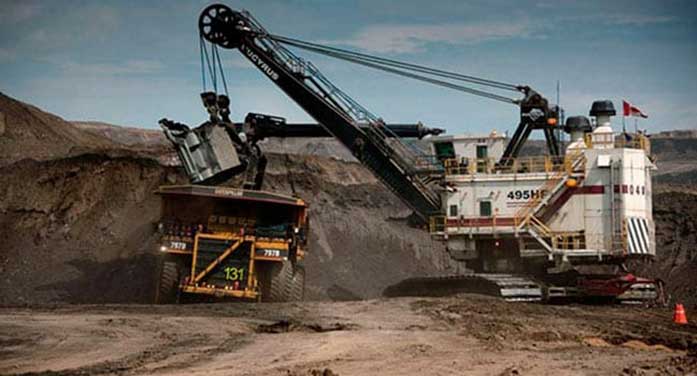The mental health of contract workers who fly in and out of Alberta’s oil sands compares poorly with that of the general population, according to a new report co-written by University of Alberta sociologist Sara Dorow.
In one of the first studies in Canada to examine mental health and well-being in the fly-in, fly-out (FIFO) working population, Dorow’s research team, along with Valerie O’Leary from the non-profit organization Critical Incident Stress Management for Communities (Fort McMurray), found that workers face inordinately stressful conditions in work camps.
Tens of thousands commute back and forth from other parts of Alberta and across the country, she said, staying in camps while working at nearby project sites for rotations of six to 21 days.
The 72 participants in the study – mostly white males residing in Alberta but with a significant proportion of female tradespeople as well – took part in an extensive one-hour, face-to-face questionnaire.
Overall they reported worse general mental health, more work-related stress, and higher incidences of diagnosed long-term health conditions and use of mental health services than found in the general population, said Dorow.
They also cited relationship strain, loneliness and stress from being away from home for extended periods, including missing significant events.
“It’s clear that distance and time away from family is a really key stressor, along with a lack of control over rotational schedules,” noted Dorow, echoing comments she made in the 2019 documentary Digging in the Dirt about the psychological impact of mobile work in the oil sands.
“People have to accept whatever rotational schedule is handed to them – with short home stays – even if it means additional stress on both travel and time away from family.”
Participants reported poor morale in camp and difficulty maintaining healthy eating and self-care habits. Sleep was reported as a challenge by many FIFO workers, but especially by women.
“It was just really stark, how much more difficult women found sleeping in camp than men.
“Some other gendered findings were also alarming,” added Dorow. “Women were much more likely than men to report discrimination: two-thirds to three-quarters of the women reported gender discrimination or sexual harassment.”
One in seven males reported thoughts of hurting themselves, she said. Calling it an “open secret,” she said there are also anecdotal reports of suicide, “but we just don’t have an accounting of the numbers.”
Another key finding is a pervasive culture of distrust, which makes workers reluctant to seek help for health problems, including mental health issues.
Half of those with access to on-site health care said they were unlikely to use it, citing concerns with confidentiality and fear of repercussions such as loss of reputation, layoffs or not being rehired, and lost time and wages.
More than three-quarters reported working when sick, and one-third reported not taking time off for an injury.
Almost half of participants cited poor communication about psychological safety, low employer commitment to minimizing stress, valuing productivity over well-being, and discrimination.
“Cultural change is number one,” said Dorow. “Probably our main policy recommendation would be to build in more mental health supports.
“Research is clear: if people don’t trust that there is a climate of support at work, it’s going to have a significant impact on their mental health and whether they report issues or use services.”
Dorow said the study underscores that oilsands employers need to be more proactive in building mental health into their overall health and safety mandate, from morning toolbox talks to drop-in counselling in work camps.
She pointed out that psychological safety was given a central place in the revised Alberta Occupational Health and Safety Act four years ago, but training and supports have been slow in coming.
“It’s really up to employers to grab onto this,” she said. “There’s a national set of recommendations for employers to build mental health into their workplace, so we need to figure out a way for operators and contractors to be accountable.”
All of the key stressors were exacerbated by the COVID-19 pandemic and its accompanying economic downturn, intensifying stress about layoffs, uncertain conditions and increased demands with decreased wages.
And though the report is the first of its kind in Alberta, the findings are consistent with those found elsewhere, said Dorow, most notably in Australia. They also come as no surprise, especially for those familiar with fly-in, fly-out work in Alberta’s oil sands industry, she added.
“That’s part of the frustration with this. Anybody up there in the camps can tell you – the mental health strains from FIFO and from the culture are obvious. They see it every day.
“Our hope is that this research will help raise awareness, bring home some of the issues and push for both further research and action.”
Dorow’s research was supported by a Partnership Engage Grant from Canada’s Social Sciences and Humanities Research Council.
| By Geoff McMaster
Submitted by the University of Alberta’s Folio online magazine. The University of Alberta is a Troy Media Editorial Content Provider Partner.
© Troy Media
Troy Media is an editorial content provider to media outlets and its own hosted community news outlets across Canada.


